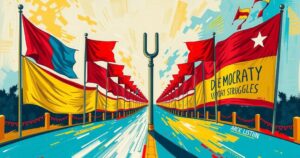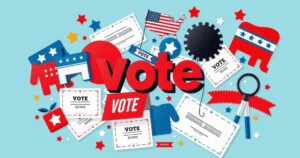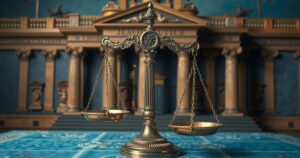Il Ruolo della Stregoneria nella Politica Ugandese

In Uganda, politicians are increasingly turning to the tavern of witchcraft as they vie for political power, twisting the intersection of faith and influence in a nation where Christianity holds sway. This cultural kaleidoscope reveals an uneasy dance between the sacred and the occult, ramping up the stakes in the political sphere. Beliefs stemming from traditional practices seep into the political dialogue, compelling leaders to navigate both faith and superstition as they prepare for upcoming elections in January 2026.
The Role of Witchcraft in Ugandan Politics
In politics, especially in Africa, the weight of traditional beliefs often becomes tangible. Uganda is no exception, where witchcraft plays an intriguing and complex role in shaping political landscapes. Politicians finding ways to outdo their rivals are increasingly turning to witch doctors for assistance, believing that supernatural powers can sway the electorate and secure their path to power. This phenomenon is part of a larger tapestry of spiritual belief in a nation that, on the surface, is predominantly Christian. The peculiar mix of faith and politics offers a unique insight into the psyche of Ugandan society where perceptions of reality are laced with spiritual nuances.
Meet the Seers Stepping into Politics
Meet Atukung Tafala, one of Uganda’s many seers, who operates from an igloo-like shrine tucked in the heart of Kampala. Tafala and others like him embody the cultural intertwining of politics and witchcraft, essentially acting as spiritual advisors to the ambitious politicians eager to secure their positions. During an interview, Tafala spoke about the rituals and offerings that many politicians undertake in their quest for dominance. He believes that the spiritual realm intertwines with the political sphere, making his role as a healer not just traditional, but also profoundly influential in the political machinations at play.
Faith and Witchcraft Coexisting
The narrative, however, grows more complicated when one considers the unease that arises from this spiritual mingling with traditional Christianity. Many politicians, while publicly committing to a Christian faith, seek the guidance of traditional healers, creating a puzzling intersection of belief systems. Church leaders often decry this cozy relationship, arguing that such practices dilute the essence of Christianity. Nevertheless, this duality exists; believers in magic and faith converge, highlighting the struggles that faith-based communities face when confronted by competing ideologies. A visible tension lingers, creating fertile ground for suspicion and fear, often manifesting in real-world political actions.
The Fear Factor in Political Theater
Then, there’s the palpable fear that grinds the gears of Ugandan politics. Politicians like Wilson Watira narrate stories of how public distrust often pushes individuals to resort to witchcraft as a means of protection or competitive edge. His interaction with a rival who refused a handshake speaks volumes about the atmosphere of fear cast by the specter of witchcraft. The pervasive belief is that physical gestures can tilt the balance of power. Traditional practices can seem bizarre to outsiders, but they’re deeply ingrained in the socio-political fabric of many East African countries, demonstrating how fear can become an operative social currency.
Politics and Witchcraft Collide
As the government gears up for the elections in January 2026, political candidates are under immense pressure to seek any advantage they can. The belief in witchcraft proves a faithful ally, blurring the lines of ethics in the political arena. Street vendors in Kampala hawk services promising magical interference in elections, turning witch doctors into lucrative allies for ambitious politicians. Steven Masiga, a researcher, comments on how caught-up politicians are with the notion that witch doctors rarely disappoint, hinting at the shadowy underbelly of Uganda’s political machinery that thrives on superstition. The depths that candidates will sink to secure a win illustrate the melding of desperation and hope present in the electoral system.
The Healing Business of Politics
In this context, the story of traditional healer Rose Mukite provides further insights into the complexities of political aid through witchcraft. With an igloo-shaped shrine and a philosophy rooted in ancient practices, she attracts clients, including politicians seeking success and protection from misfortune. Mukite’s methods include divination rituals that have been passed down through generations and a belief that aiding politicians connects her to the fate of the nation. However, her narratives reveal a bitter truth: sometimes, these rituals come too late, as clients grasp at spiritual straws once the inevitable has occurred. The dualism of hope and despair is evident in her practice, highlighting a plight many politicians might face when reality clashes with illusion.
Why do Ugandan politicians seek help from witch doctors?
Many politicians in Uganda are increasingly consulting witch doctors to gain a competitive edge in elections, especially in times of growing political maneuvering and rivalry.
How does witchcraft influence Uganda’s political landscape?
The belief in witchcraft is deeply rooted in Ugandan society, allowing many to navigate the complexities of spiritual warfare, even while publicly maintaining a Christian identity.
What relevance does witchcraft have for politicians during elections?
Some believe that witch doctors provide real, effective guidance that complements their political strategies, providing hope and a sense of security to those involved in intense political contests.
Are politicians open about using witchcraft in their campaigns?
While some politicians may acknowledge their use of traditional rituals, many prefer to keep their relationships with witch doctors under wraps for fear of public ridicule or backlash.
How do traditional beliefs coexist with Christianity in Uganda?
Traditional healing practices and witchcraft coexist with Christianity in Uganda, creating a unique but uneasy relationship that often perplexes both political and religious leaders.





